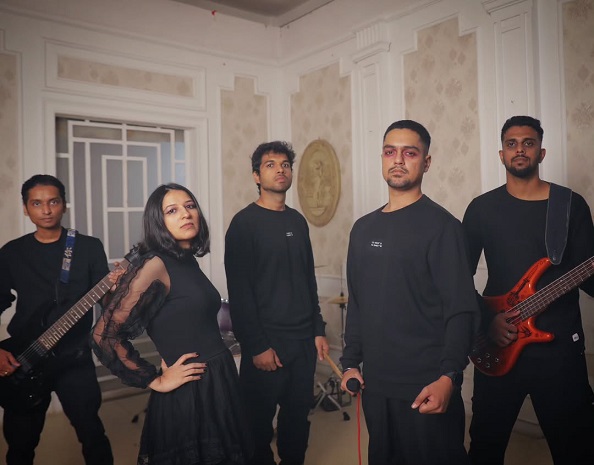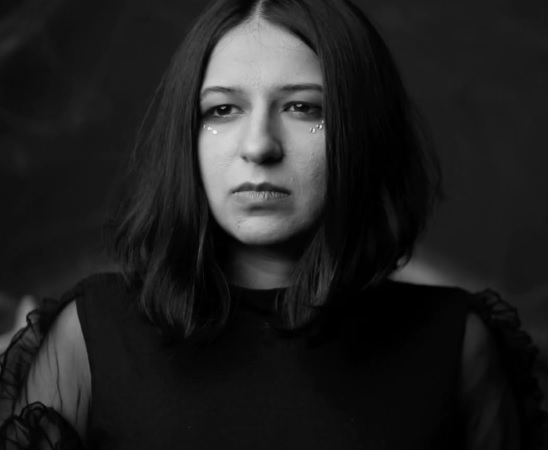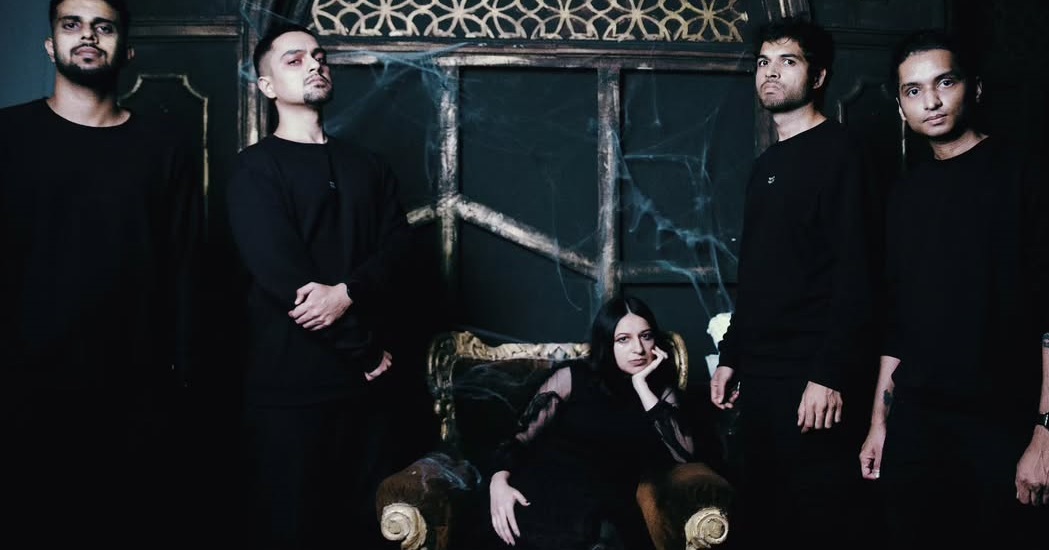
We recently wrote on our blog about Apocryphal, the Mumbai-based Indian band, in connection with their latest song, Spiders. The genre they define as dream metalcore perfectly showcases the harmonious fusion of mystical India and metal. We conducted a short interview with the band, where they talk about their beginnings, songwriting process, and the Indian metal scene.
How did the band come together? What inspired you to create music in the metal genre?
Apocryphal was started by Karan Sanchala (Producer & Guitarist) as a solo metal project,
with Kiran (Vocalist) and Riddhi/Dream Anatomy (Vocalist) featuring as independent artists
for a few tracks. The trio was then joined by Abhishek (Drummer) and Mitish (Bassist). All
band members share common love for metal music, but we also appreciate the diversity
within metal and other genres. Our music is powerful, dark, melancholic, and intense at the
same time.
Are there any bands or artists you consider particularly impactful on your work?
All of us have diverse influences: For Karan,Kiran
and Abhishek it is bands like Lamb of God, Bleed from Within, Spiritbox,
and Architects that have had a profound influence. For Mitish, it is Red Hot Chilli
Peppers, Linkin Park, System of a Down, Project Mishram, and the like. For Dream Anatomy it is Spiritbox, Evanescence, Björk, and Portishead.
What musical and cultural influences have shaped your style?
Everything under the sun is our influence. But a lot of our music is rooted in spirituality and
uplifting oneself.
How does the audience in India respond to the genre and your performances?
Metal is an adopted genre for the Indian audience. We have a very small metal community,
but the energy and passion of Indian metalheads is inspiring. We feel fortunate to play for
an audience that is genuinely appreciative of the music, but sometimes we also wish we had
a bigger scene and more opportunities here. While the Indian metal scene is growing, it
faces challenges like access to venues and resources as well as the dearth of a new
generation of metalheads.
What is your songwriting process like? Do you create together as a band, or do you build
on individual ideas?
We typically build on individual ideas. Karan is where it all starts and then each of us steps
in. All of us bring in our unique taste and influences. And the one thing that’s common is–
we are not afraid to take risks.
How do you view the position of the Indian metal scene in the global metal community?
We look at it as a rising force with so much potential and diversity – we could surely use
more support from within and outside the country to ensure that this potential is unleashed
for the world to see. Some Indian bands like Bloodywood and Gutslit are already making a
major mark on the global stage and making India proud – we see a lot many bands following
suit.
Dream Anatomy, tell us a bit about yourself! How long have you been singing?
Growing up, music was always the first escape I resorted to unconsciously. It always
has been my safe haven. Not a lot of people know that I created Dream Anatomy to
help listeners escape to a different world—in the “flow” state—that is what I want
my listeners to feel.

It’s been ~20 years since I started singing but I did not start composing until 2015
and only had the confidence to release my compositions by 2020. In fact, I am
bringing the very first song I wrote, to life this year. My aim with my music—whether
it is with Apocryphal or Dream Anatomy, is to help people transcend reality, break
boundaries, and give them a taste of what true freedom is like - you are only as free
as your mind is.
What has been your experience as women in a genre often dominated by men?
I’m glad you asked! I have met so many supportive men and women with whom I
have had the privilege to discuss music and art. On the other hand, I have felt highly
judged by some men and also women in the genre. There are some who haven’t
missed a chance to remind me I don’t belong, especially on my bad days. But, I
always operate from a place of faith, not fear and self-doubt. Music is a very sacred
and personal space for me and I am still learning to build thicker walls. I prefer to
express myself with my words, melodies, and voice. Physically, it can be challenging
for women in metal, given that we have different biological rhythms.

How did metal become a part of your life?
Metal became a part of my life sometime in the early 2000s. It was a transition from
pop – I still love pop as much – but it felt like I belonged there when I heard rock and
metal for the first time. Being angry didn’t feel wrong anymore.
As an Indian woman, how important is religion in your life?
Religion, not so important. Spirituality, very much. If anything comes close to religion
for me, it is music. Although I am not religious, I am always reading into philosophies
underlying different religions. There is so much wealth in them!